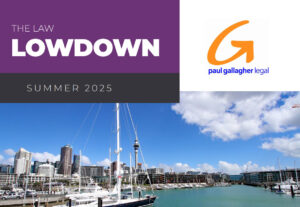Recently Jetstar was ordered to pay a $2.25 million fine after misleading customers about their compensation rights when flights were cancelled or delayed for reasons within its control. The case made headlines and put the spotlight on what New Zealand travellers can reasonably expect when their journeys are disrupted.
Flight cancellations, delays, and where boarding is denied are not just frustrating – they can create extra costs for accommodation, meals, and missed connections. New Zealand law provides a patchwork of protections through aviation legislation, consumer law, and the contracts you agree to when you buy a ticket. Knowing how these rules work can make it easier to claim back expenses when things go wrong.
Domestic Flights: Civil Aviation Act 2023
On local routes, the Civil Aviation Act 2023 sets out what airlines must do. If a delay or cancellation is within the airline’s control – for example, a mechanical issue or staff shortage – the airline has to either refund the ticket, get you onto another flight, or compensate you for the losses you have suffered. Where the cause is outside the airline’s control, such as bad weather or air traffic restrictions, the law doesn’t compel compensation. In those situations, assistance is often discretionary and a matter of “carrier goodwill”.
International Travel and the Montreal Convention
For flights to or from New Zealand, the Montreal Convention applies. This international treaty makes airlines liable for financial loss caused by delay. Travellers may claim for actual, proven costs such as extra accommodation or missed onward travel, unless the airline can show it did everything reasonably possible to avoid the problem. The treaty also imposes upper limits on how much can be claimed.
Consumer Guarantees Act
The Consumer Guarantees Act 1993 (CGA) provides another layer of protection. Air travel is a service, and airlines must provide it with reasonable care and skill. If they fail to do so, you may be entitled to recover costs you’ve had to meet because of the disruption. What counts as “reasonable” varies depending on the circumstances, but it gives passengers another pathway to seek redress.
Conditions of Carriage
Airlines also publish their conditions of carriage – the terms and conditions you accept when you book. These usually set out what support will be provided in the event of disruption, such as meal vouchers or overnight accommodation. The scope of what’s offered varies from airline to airline, so it pays to check the details.
Practical Steps for Travellers
If your flight is disrupted, keep receipts for every expense, from meals to transport. Ask the airline – preferably in writing – what assistance they are prepared to provide. If you are not satisfied, you may have options through the Disputes Tribunal, or by contacting the Commerce Commission or a lawyer for advice.



